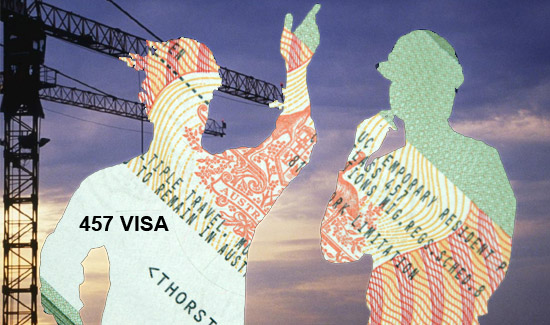Migrants under-valued, study says
 Migrants are getting stuck in part-time and insecure work that does not recognise their qualifications, according to a new study.
Migrants are getting stuck in part-time and insecure work that does not recognise their qualifications, according to a new study.
More than half of surveyed skilled migrants are working in lower-skilled jobs than before they migrated to Australia, says the new report, Minimising skills wastage and maximising the health of skilled migrant groups.
The researchers say the underutilisation of professional migrant skills is a critical issue for the entire country.
“Australia has a long history of using migrants to fill skills gaps and labour shortages, but those skilled migrants face a range of barriers to both gaining employment and working in jobs that are in line with their qualifications and experience,” said Professor of International Health, Jaya Dantas, from the Curtin University School of Nursing, Midwifery and Paramedicine.
The survey of over 500 skilled migrants found that even though 53.1 per cent indicated they had less-skilled jobs here than before they migrated, more than 60 per cent of participants reported finding their occupation meaningful.
The survey found that 14 per cent of participants reported experiencing discrimination and racism because of their migrant background.
“Skilled migrants who are unable to find employment in their chosen occupation result in skills wastage, which can lead to being unable to support their families, economic hardship and, in some cases, potentially becoming a drain on government resources,” Professor Dantas said.
“Some of the examples of skills wastage included a former engineer now working in WA as a technician, a vocational school teacher turned cleaner and packer, a geologist working in aged care and a mechanical engineer employed as a security officer.”
The under-employment of skilled migrants has been shown to contribute to health and wellbeing issues both at work and in the home, including feeling unfulfilled and undervalued.
“Employment and settlement challenges can have significant impacts on the mental health of newly settled migrants, resulting in anxiety and social isolation, possible depression and feelings of isolation in their new home,” Professor Dantas said.
The experts hope their study can be used to guide changes to Australia’s skilled migration framework to help skilled migrants, employers, industry and government departments.
“Australia is likely to remain an attractive destination for independent skilled migrants so it’s important this framework can be used to prevent skills wastage and ensure the attraction and retention of skilled migrants and their families,” Professor Dantas said.
“Our revised framework addresses pre-migration, employment, settlement, workforce, productivity and integration issues with the ultimate goal of making settlement in Australia easier for new migrants. We also call for the development of national, state and regional strategies to support skilled migrants’ transition into the workforce and their new country of migration.”
Key report findings include:
Employment barriers
- Language can be a barrier to both employment and settlement
- Skilled migrants face discrimination and experience an unwillingness by Australian employers to hire migrants, especially due to their qualifications not being recognised
- Skills requirements are different in Australia, which force migrants into low-skilled jobs and having to undergo lengthy licensing and training processes
Health and wellbeing
- Employment barriers have repercussions on mental health, both for the primary skilled migrant and secondary migrants (including family) who may feel isolated
- This impacts their mental health, resulting in anxiety and social isolation; possible depression and feelings of dislocation
- Skilled migrants who experience under-employment feel unfulfilled and undervalued, as well as experiencing possible discrimination







 Print
Print